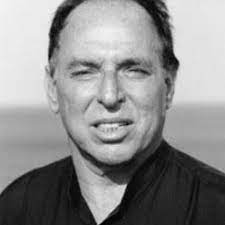Marty Peretz, best known as the publisher of The New Republic from 1974 to 2011 has just published an autobiography entitled The Controversialist under the imprint of Wicked Son Books, a rubric anyone familiar with seder liturgy would understand.
I knew Marty Peretz in another context, when he was an academic leader (formally, Head Tutor) in Harvard College’s interdisciplinary social sciences program, in which I majored. I last saw Peretz a decade ago at what he calls “the most painful episode in my public life,” the fiftieth anniversary celebration of the Social Studies Program. Why would a celebration be so painful? A few weeks before, he had written an ill-considered and intemperate blog about Islam and Muslims, and a variety of student groups were condemning him as a racist. In my post about the event, I expressed “sympathy for and sadness about Peretz.” Peretz looked sad and diminished, very different from the robust and charismatic person I remember from my undergraduate days.

I therefore appreciated his book because it represents his attempt – at age 84 – to tell his life story and, as the title suggests, to respond to the critics of a lifetime of controversy. The Peretz I just read is much more vital and unapologetic than the Peretz I saw a decade ago.
Putting their Money where their Mouth is
An essential and transformative fact of Peretz’s life is that he married Anne Labouisse, whose great-great-grandfather was cofounder of the Singer Sewing Machine Company. Marty and Anne used her inherited wealth for a variety of liberal political causes, including supporting Democratic candidates and, in 1974, buying The New Republic. The Peretz’s, for better or worse, are the precursors of politically active billionaires such as the Koch Brothers and George Soros.
Bildungsroman and Controversies
The first third of the book is a bildungsroman about Peretz’s childhood in a closely-knit post-Holocaust Jewish community in New York, his education at Bronx Science and Brandeis, and then his graduate work and early academic career at Harvard. I found the chapter about Harvard particularly enlightening because it deals with several of my professors and fellow students and, more broadly, because it discusses how a WASP establishment institution opened its doors to talented Jews and other outsiders. The latter story has much in common with the Canadian and British establishments doing likewise in the late Fifties and Sixties, for example the University of Toronto’s Medical School and Trinity College.
The rest of the book deals with the multiple controversies Peretz engaging in. The New Republic was a journal of opinion with a liberal pedigree, and Peretz hired in his own image, talented and opinionated young writers, and they engaged in heated debates in print about foreign (Israel, Iraq, the Soviet Union) and domestic (affirmative action, poverty, the presidency) policy.
Mensch
Peretz presents an intellectual and temperamental self-portrait. A quick study, able to grasp the essence of a book or argument, but without comparable interest in the details, “a skimmer not a plumber” as one of his academic mentors called him. A connector with his ear to the street and a gift for friendship. Using the privilege created by his inherited wealth, an “intellectual entrepreneur” with a talent for identifying talent and bringing together people and causes. On the other hand, possessing an explosive temper, often directed at those he considered his intellectual inferiors and that he recognizes created enemies. Finally, Peretz admits that he is gay, or bisexual, but he does not discuss the influence of his sexuality on the rest of his life, except to imply that it increased his sympathy for gays and lesbians.
Controversialist
A picture of Peretz’s weltanschauung and politics emerges from his recounting of his role in political controversies and of the politicians he supported and those he disdained. Peretz is a Zionist, a strong (but not unconditional) supporter of Israel. He is deeply aware of nationalism, including his own as Zionist and as American. He was a strong opponent of Soviet Communism who advocated for its dismantling. He was a critic of top-down policy change, like Bill Clinton’s ill-fated health care reform proposals, and uncomfortable with performative politics. One way to get a quick grasp of Peretz’s controversialism is to read his Wikipedia entry, which clearly is compiled by his adversaries.
Though he doesn’t quote Weber’s well-known definition of politics as the “slow boring of hard boards,” the politicians he most admired – Eugene McCarthy, Al Gore, Ehud Barak – were those who worked incrementally on the most challenging policy issues.
Peretz could have strengthened this part of the book by penning a credo, an ultimate and comprehensive summary of his politics and weltanschauung, in addition to letting it emerge from his controversies.
I’ll give Marty the last word: “My faith is a very Jewish one, though my life is testimony of many more people than Jews holding it: that the solutions to our problems lie in debate, learnedness, cultivation, and honest differences among smart, talented committed people. It was the key to such success as I had, and it was the key to the humanized technocracy I fought to build.”
Marty, I appreciate your book as an opportunity to connect with you after many years. Other readers will benefit from it as a story of a unique American and Jewish life, and a stimulus to thinking about many American and global policy issues.

Leave a Reply